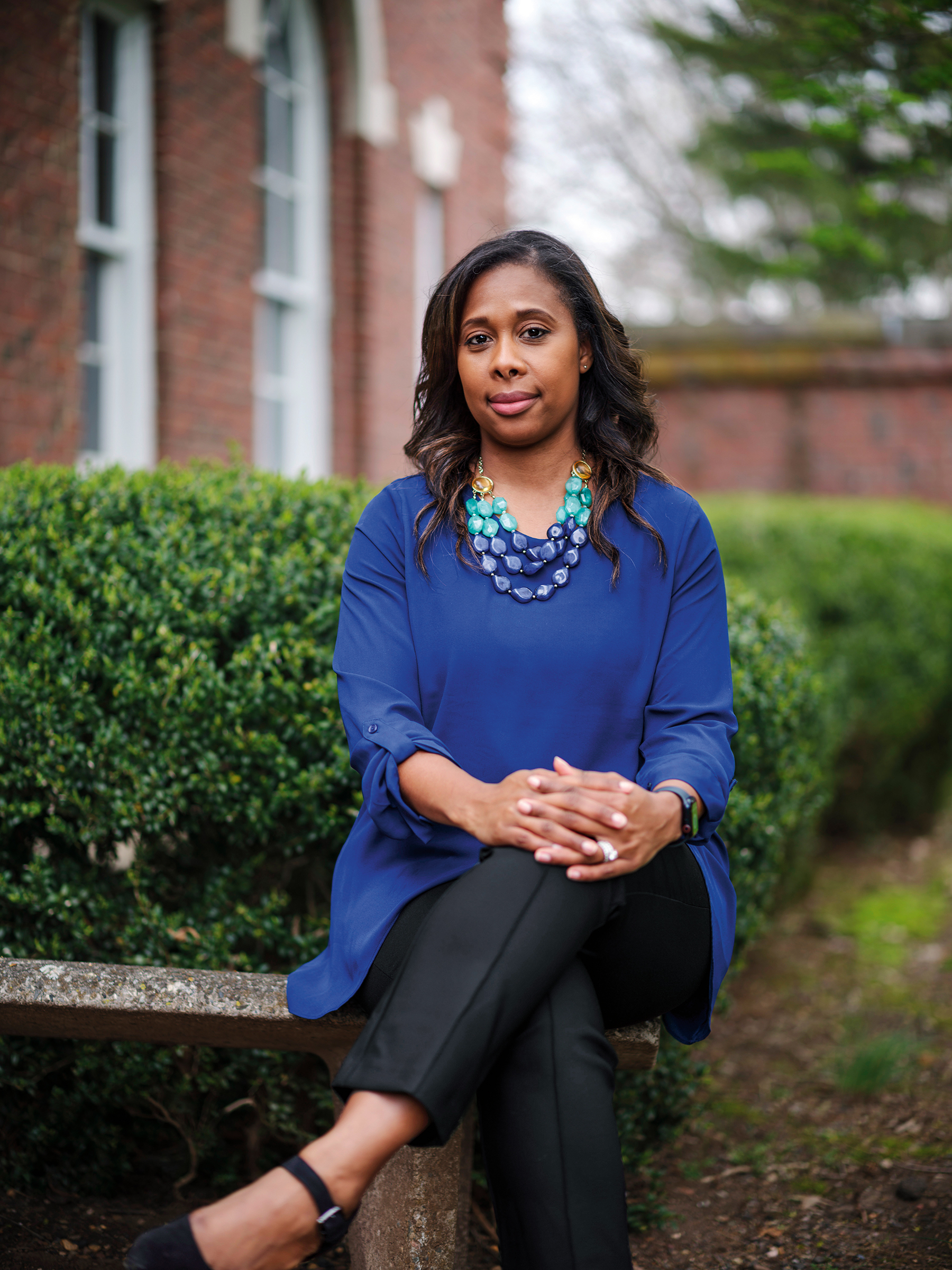Social Service
Zakia Clay, Assistant Professor of Social Work and Director of Master of Social Work Program, Florham Campus

(Photo: Karsten Moran)
By Mary Ann Bautista
Growing up, Zakia Clay saw people she loved suffer and struggle with substance misuse, relationship stress and the criminal justice system. It was then that she saw how “social workers played such an important role in helping them navigate those situations.”
Determined to support other people facing similar challenges, Clay, assistant professor of social work and director of the online Master of Social Work (MSW) program in the School of Pharmacy and Health Sciences at the Florham Campus, became a licensed clinical social worker in 2013. Since 2020, she’s been educating and nurturing the next generation of social workers at FDU.
“It’s amazing to teach at a university that is student-centered and committed to cultivating a work culture grounded in mutual respect and inclusivity,” she says. “I love the students and the rich experiences they bring to the table, as well as my remarkable colleagues who work hard and care deeply about the students.”
As the MSW program director, Clay always looks at the big picture. “Our curriculum should be reflective of human rights as well as the social, economic and environmental issues society is facing,” she says.
Recruiting diverse faculty to join the program was instrumental. “The courses are infused with their expertise. We were also intentional about the required readings and assignments by making sure they include current research, best practices and approaches.”
Courses are structured to offer opportunities for students to discuss their own experiences. “This prompts them to make connections to the field of social work,” she says. “Engaging students in these discussions and learning from their experiences also enrich the curriculum.” Students must be prepared with the knowledge and skills to address these complex challenges upon graduation. Teaching an online program “requires a different level of intentionality and creativity in the ways we engage students, develop courses and deliver course content.”
Clay wants people to understand the depth and breadth of social work. “People think social workers only work in schools, child welfare organizations or in hospitals,” she says. “But they also work in jails helping with the prisoners’ re-entry, and in domestic violence organizations with individuals and families on safety planning. Social workers also provide therapy, draft government policies, apply for grants and conduct research.”
Clay is intent on widening the scope of the MSW curriculum, exploring the possibility of offering specializations, and taking advantage of the natural synergies among the health science programs and within other disciplines. A federal grant from the Health Resources and Services Administration, led by Clay, involves a three-school collaboration that “will increase the pipeline of behavioral health workers serving children, adolescents and youth in underserved communities.”
She’s also very focused on her students’ physical and mental well-being. “Students are navigating challenges that weren’t present before, so I’ve had to reorient them to University resources that can help them achieve success.” She also wants students to give themselves the grace and space to be imperfect — something she has learned over the years. “I’ve experienced the most growth and personal development in moments when things didn’t go exactly as planned,” she adds.
Clay finds fulfillment in witnessing her students grow and achieve. She is determined to help them become more confident in their abilities to make a difference in society. “This may be my greatest legacy: educating future social workers who believe in their power to influence positive changes for themselves, others, their communities and beyond.”